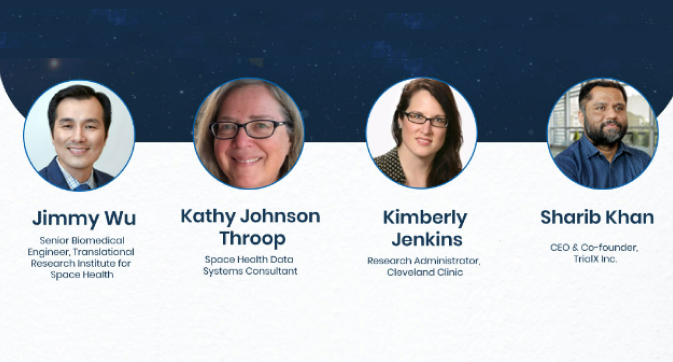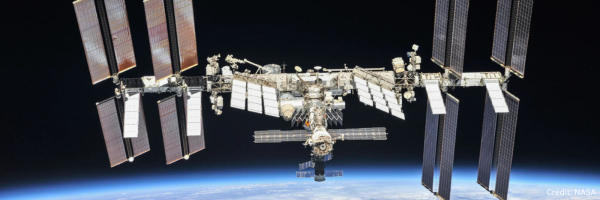Decentralized Clinical Trials & Space Health Research – What’s the Connection?

Space health research may have broad applicability for conducting DCT on earth.
We had a very exciting and informative webinar on Nov 9, 2022 – the first in our Space Health & DCT Webinar Series – with our esteemed panel of space health researchers and clinical trials industry leaders discussing How can remote data collection from space health research help decentralized clinical trials on earth?
Here’s the full webinar recording if you missed it.
Recent commercial space missions have opened up new avenues for conducting health research on the impact of space travel on civilian astronauts. Unlike clinical research on earth, conducting research activities in space presents unique challenges. Solutions to these challenges could potentially have broad applicability for conducting decentralized clinical trials on earth. Can the tools and technologies used in space health research enable greater adoption of clinical trials here on earth in decentralized mode? Can these technologies help patients track their health better? Can these technologies encourage patients to become more involved in their health care? We sought answers to these questions and discussed the following key points:
- The current state of space health research in commercial space missions.
- Constraints faced in implementing remote data collection in space.
- Promising remote data collection devices/technologies being used in space health research.
- Challenges faced in conducting decentralized clinical trials here on earth.
- How can space health research provide a blueprint for decentralized clinical trials on earth?
- How EXPAND – an open space health research database – used by the Translational Research Institute for Space Health (TRISH) is pushing the envelope of research?
Talking about what civilians going to space means for space health research, Jimmy Wu, Senior Biomedical Engineer, Baylor College of Medicine said
We are starting to see a more democratized set of individuals go into space and as such, we also start seeing a different profile of health conditions that will go into space… And so, this is what’s really interesting is we don’t have a lot of data on what some of those pre-existing conditions may manifest in spaceflight. So, conditions such as diabetes, or cardiovascular disease are normally screened out with our professional astronauts, but obviously, very common in the general population but we have zero data on how those conditions manifest in spaceflight. So this is really a unique opportunity to start collecting data on the early pioneers.
Despite all the advancements in technology, one of the biggest hurdles related to commercial space flights is training and skill retention. Kathy, a Space Health Data Systems Consultant who worked with NASA for 14 years, agrees that NASA had the same challenges with training.
…Thing that we did was just to train and train and train. The devices were not always easy to use, and so you had to execute it several times.
she says.
Adoption of decentralized technologies in clinical trials such as use of electronic consent, remote data capture, telehealth, home health visits and direct to patient supply is gaining traction. However, the hurdles of skill retention faced by the space fliers are quite relevant to the decentralized clinical trial arena on earth as well, the panel believes. Kimberley, research administrator at Cleveland clinic who has nearly 20 years of experience in the clinical research field thinks
Space is the ultimate decentralized trial platform.
As the interest in do-it-yourself processes increase in the healthcare arena, we hope that in the coming years some of the technologies being used in space missions could make monitoring much more easier and accessible so that this can be at the population level for general health care monitoring and general self care.
Summarizing the thoughts shared by our guests, Sharib says
What’s exciting to me is I think the constraints. Space offers constraints, constraints on all the things that we take for granted here on Earth and that constraint allows our imagination and creativity to be at one of the best. I think constraint is the driver for amazing Innovation, and that Innovation then is a path to freedom, freedom for us to do research at home, at night, in the morning and we don’t worry about it.
He hopes, we are able to have “little patches” on our bodies that could monitor vitals, do some quick continuous blood monitoring and can give us some alerts on things before we land on Mars. He envisions,
It’s within reach. Within five years, I think we should be able to come to that world where monitoring becomes much easier, much more accessible. And we can have a million people enrolled in a study, not four, five or six or hundred, thousand that we are seeing in some of the DCTs.
Watch the Full Webinar Here
Stay tuned for updates on our next webinar in the series on Space health & DCT! Upcoming in early 2023!


